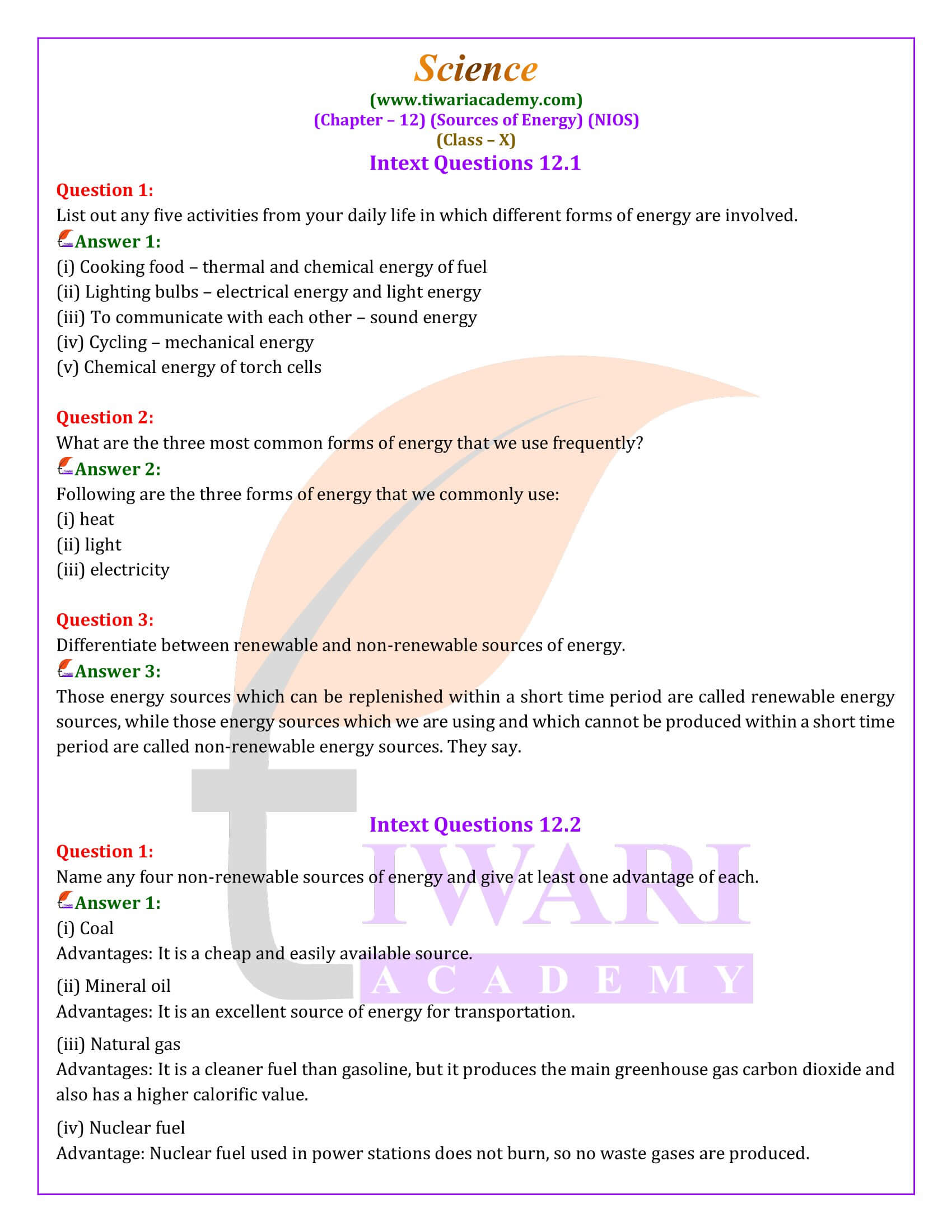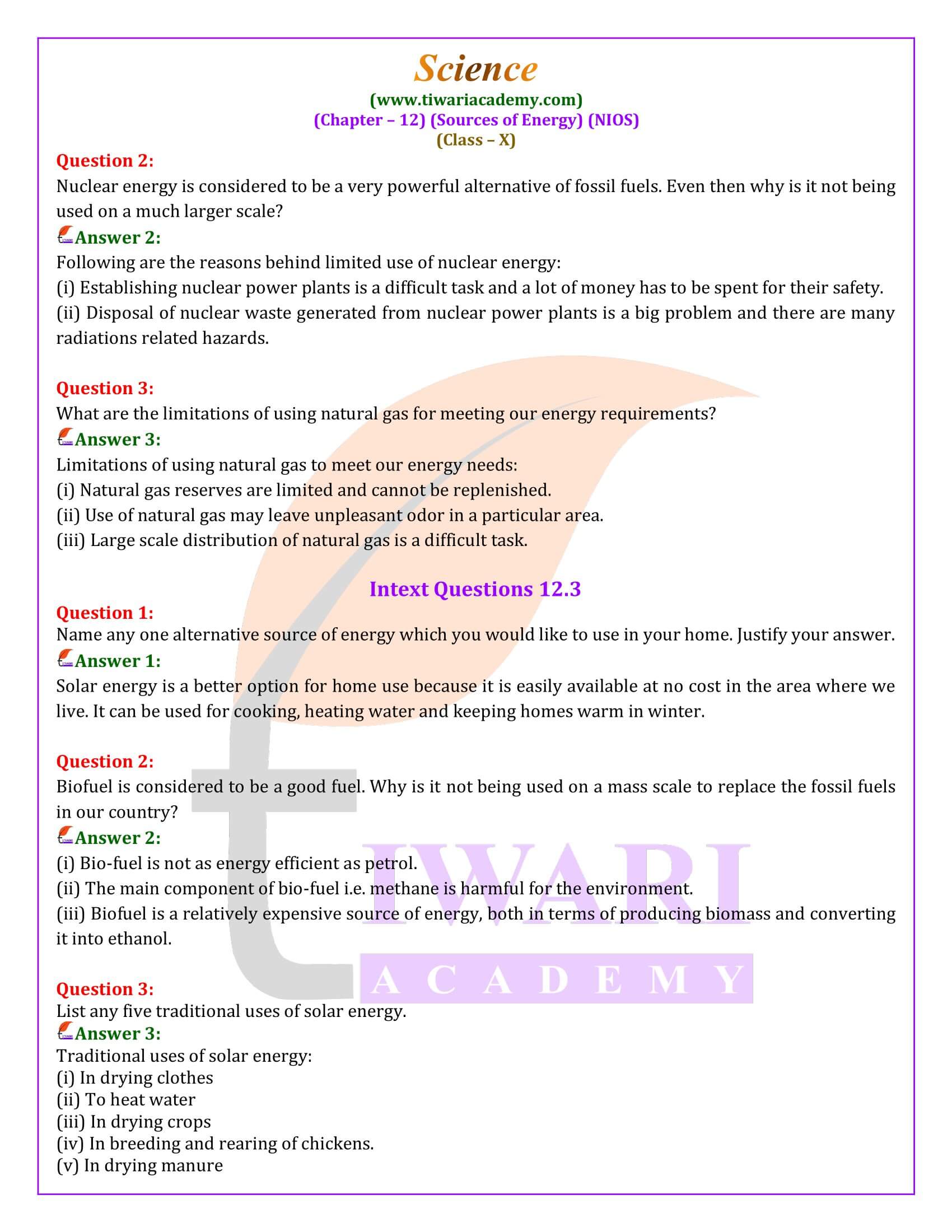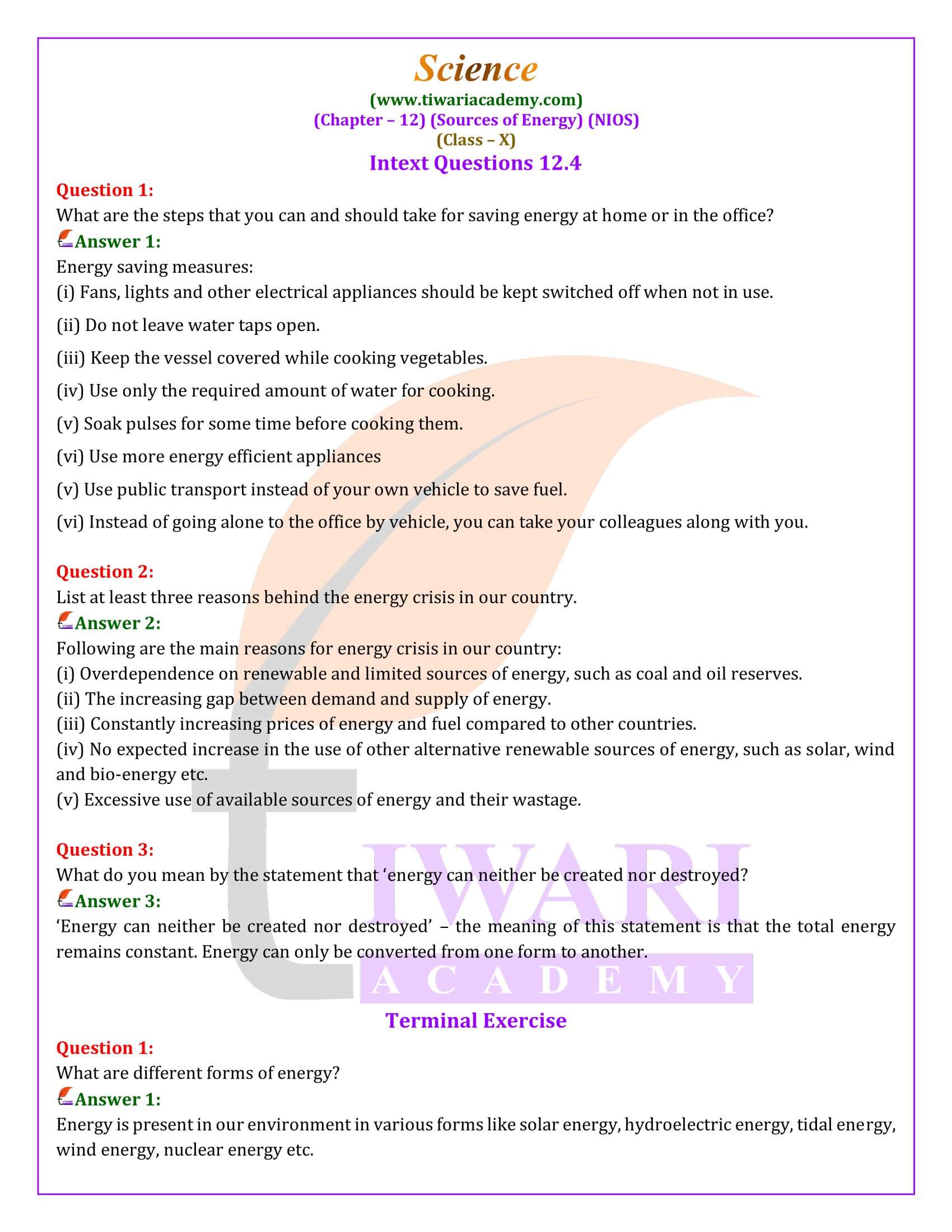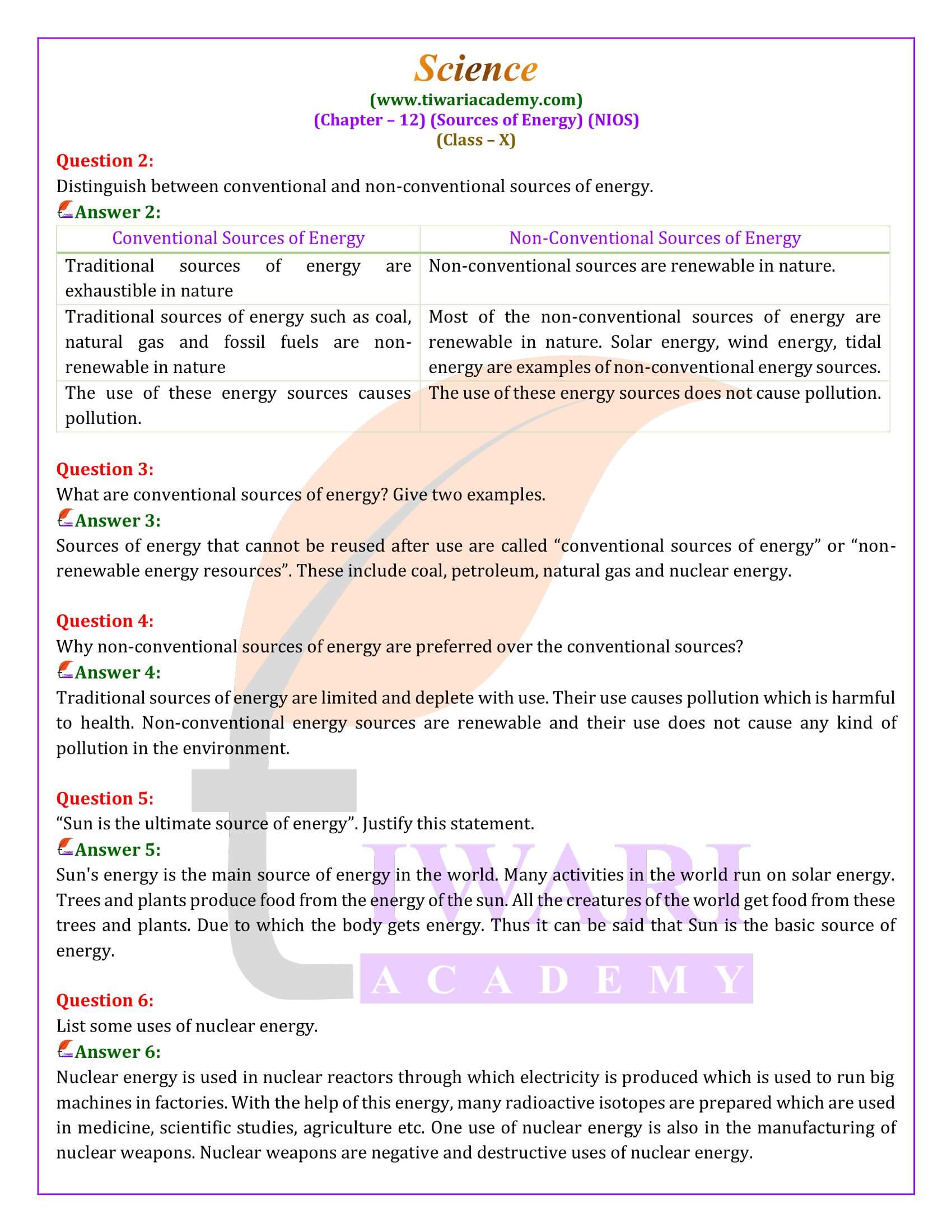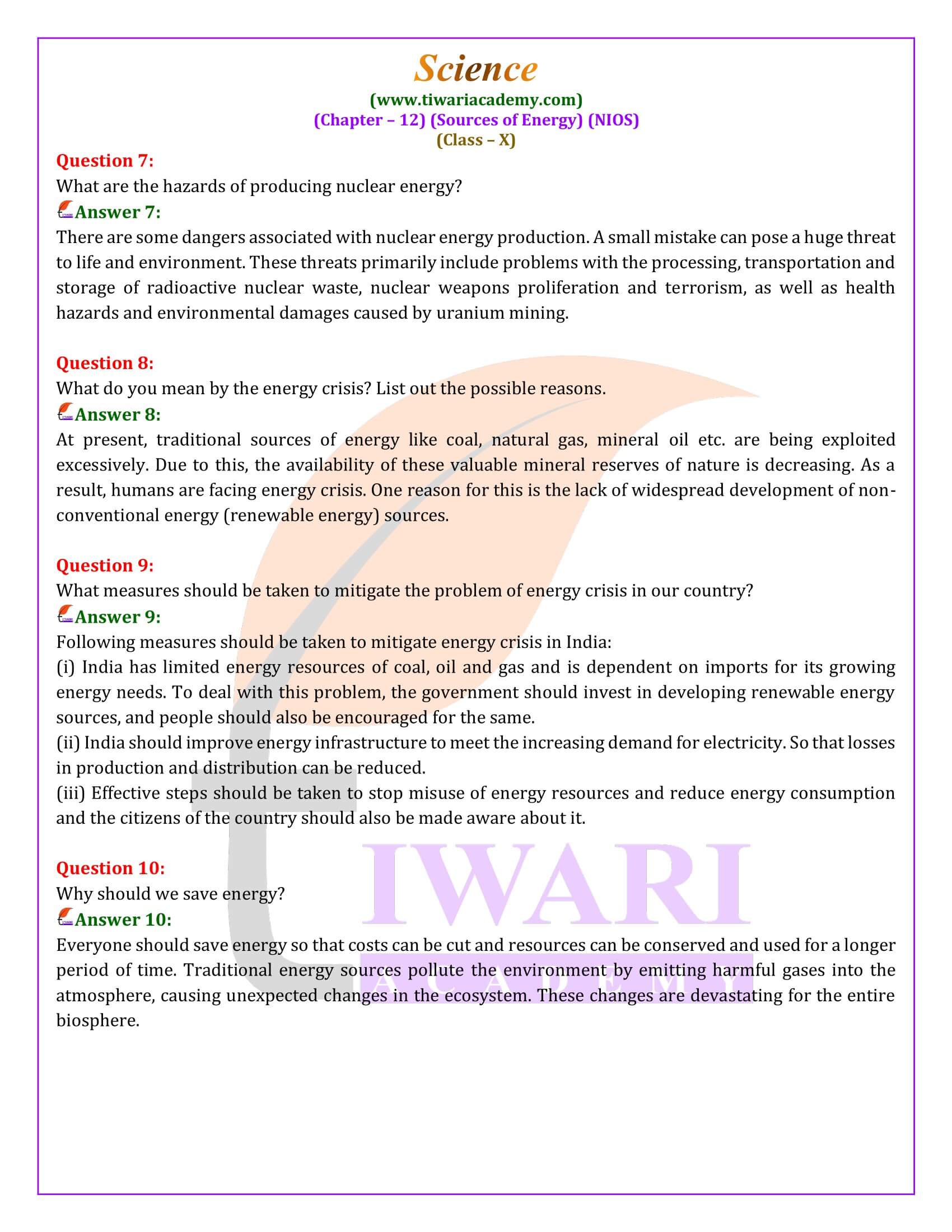NIOS Class 10 Science Chapter 12 Sources of Energy in Hindi and English Medium solutions and all intext question answers for new session. Class 10 Science Chapter 12 for NIOS students is given here in simplified format.
Understanding the Vital Role of Energy in Our Lives and Its Sources
Energy is a fundamental aspect of our lives, from waking up in the morning until we go to sleep at night, playing an indispensable role in our daily activities. Its importance spans various domains, ensuring our survival, aiding in transportation, and powering myriad devices that facilitate our modern lifestyle. This chapter delves into the diverse sources of energy, their significance, limitations, and the pressing issue of the energy crisis, while also discussing strategies for energy conservation and efficiency.
Energy: An Essential Force
Energy, defined as the ability to do work, manifests in various forms, including mechanical, solar, nuclear, and chemical energy. It is intrinsically linked to almost every action and process, from natural phenomena to the functioning of man-made devices. The quest to understand where we obtain this vital resource leads to a discussion on different energy sources, highlighting both conventional (fossil fuels, nuclear energy) and non-conventional (solar, wind, biomass) sources. The chapter underscores the significance of energy in not just powering our vehicles or homes but in driving the economy and supporting our very existence.
The Quest for Sustainable Sources
As the world grapples with the depletion of non-renewable sources like coal, oil, and natural gas, the focus has shifted towards renewable and more sustainable sources of energy. These include solar, wind, hydroelectric, and geothermal energy, each with its own set of advantages and limitations. The text emphasizes the sun as the ultimate source of energy, shedding light on its capacity to sustain life on Earth and its potential in generating clean energy through technological innovations.
Navigating the Energy Crisis
The chapter 12 provides a comprehensive analysis of the energy crisis—characterized by the growing demand for energy outstripping the supply, leading to significant economic and social repercussions. It explores the root causes of the crisis, including over-reliance on fossil fuels, environmental concerns, and the challenges posed by climate change. The narrative then transitions to potential solutions, advocating for a mix of policy initiatives, technological advancements, and individual actions aimed at conserving energy and harnessing renewable sources.
Conservation: A Collective Responsibility
The discourse on energy is incomplete without addressing the crucial aspect of conservation. The chapter 12 offers practical advice on conserving energy in daily life, promoting the efficient use of resources, and minimizing wastage. It calls for a concerted effort from governments, businesses, and individuals to adopt sustainable practices and make conscious choices that reduce energy consumption and environmental impact.
Towards a Sustainable Future
The chapter on sources of energy provides a holistic overview of the pivotal role of energy in our lives, the challenges posed by current consumption patterns, and the imperative to transition towards more sustainable and renewable sources. It serves as a call to action for embracing energy efficiency, conservation, and innovation, ensuring a balanced and sustainable energy future for generations to come.
